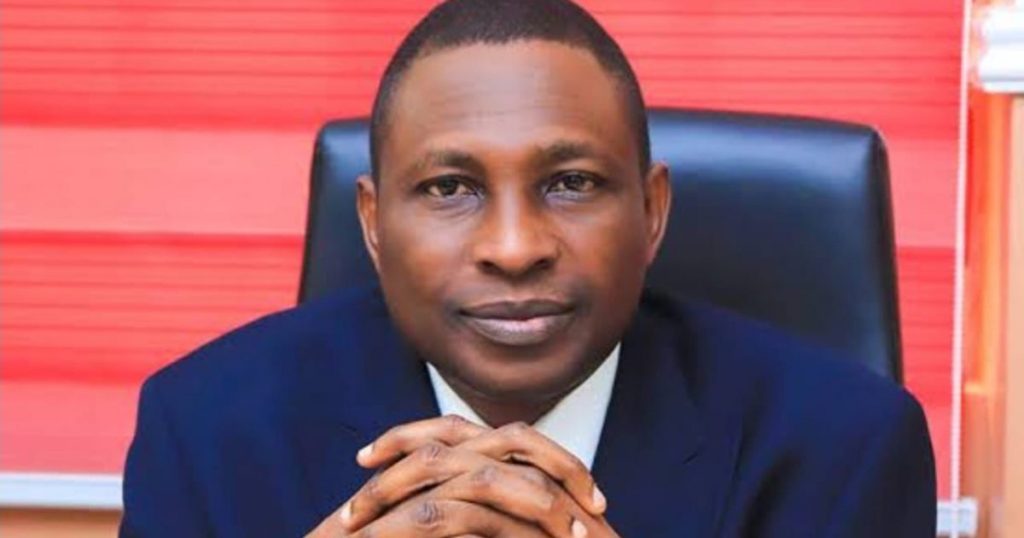Paragraph 1: A Call to Collective Action Against Corruption
The Chairman of the Economic and Financial Crimes Commission (EFCC), Abdulkarim Chukkol, has delivered a powerful message of hope and resilience in the face of Nigeria’s ongoing battle against corruption. Speaking on the occasion of Eid-el-Fitr, Chukkol expressed unwavering confidence in the Nigerian people’s ability to overcome this pervasive challenge through collective determination and a shared commitment to ethical conduct. He emphasized that tackling economic and financial crimes, the bedrock of corruption, requires courageous action and a united front from all segments of society. This call to action underscores the importance of citizen engagement and collaboration in the fight against corruption, positioning it not just as a government responsibility, but as a national imperative.
Paragraph 2: The Strength of Unity and Resolve
Chukkol’s message resonated with a powerful affirmation of Nigeria’s inherent strength and resilience: "Nigerians are stronger than corruption." This declaration serves as a rallying cry, reminding citizens of their collective power to overcome this societal ill. He emphasized that no corrupt act, regardless of its magnitude, can shatter the nation’s common resolve and determination to build a corruption-free society. This message of unity and unwavering resolve seeks to inspire hope and instill confidence in the ability of Nigerians to collectively confront and conquer the scourge of economic and financial crimes. It highlights the importance of a united front against corruption, transcending individual differences and fostering a shared commitment to national integrity.
Paragraph 3: Embracing the Lessons of Ramadan
The Chairman strategically linked his message to the spiritual significance of Eid-el-Fitr, urging Muslims to internalize the values instilled during Ramadan – self-denial, discipline, sacrifice, love, and purity – and channel these virtues into a renewed commitment to shun corrupt practices. He highlighted the importance of translating the spiritual growth achieved during the holy month into tangible actions that promote ethical conduct and integrity in daily life. This connection between spiritual principles and the fight against corruption underscores the moral dimension of the issue, emphasizing that combating corruption is not only a legal and economic imperative, but also a moral obligation.
Paragraph 4: Eid-el-Fitr: A Celebration of Benevolence and Sacrifice
Chukkol further emphasized the significance of Eid-el-Fitr as a time when Allah’s benevolence and sacrifice are magnified. He urged Muslims to embrace the lessons of love, peace, joy, and celebration inherent in the festival, and to allow these values to inspire a greater desire to reject corruption in all its forms. By framing the celebration of Eid-el-Fitr within the context of the anti-corruption fight, the Chairman reinforces the message that ethical conduct and integrity are integral to both spiritual and societal well-being. This connection between religious values and the fight against corruption provides a powerful moral framework for individual and collective action.
Paragraph 5: The Anti-Corruption War Gains Momentum
Beyond the moral and societal aspects of the fight against corruption, Chukkol provided an update on the ongoing efforts of the EFCC. He assured Nigerians that the anti-corruption war is not only on course, but is gaining significant momentum. The EFCC, he stated, is intensifying its efforts to curb economic and financial crimes, becoming more effective and efficient in its operations. This assurance aims to instill confidence in the effectiveness of the anti-corruption agencies and to demonstrate the government’s unwavering commitment to eradicating corruption. It also serves as a warning to those engaging in corrupt practices that the EFCC is becoming increasingly vigilant and resolute in its pursuit of justice.
Paragraph 6: A Collective Responsibility and Renewed Hope
Chukkol’s message, delivered during a time of spiritual reflection and celebration, serves as a powerful reminder of the collective responsibility to combat corruption. By connecting the values instilled during Ramadan with the ongoing fight against economic and financial crimes, he effectively bridges the gap between spiritual principles and practical action. The Chairman’s unwavering confidence in the Nigerian people’s ability to overcome corruption, coupled with the EFCC’s intensified efforts, instills a renewed sense of hope and determination. His message resonates with a clear call to action: Nigerians, united in their resolve and guided by principles of integrity, can and will triumph over corruption, building a stronger, more just, and prosperous nation for all.


